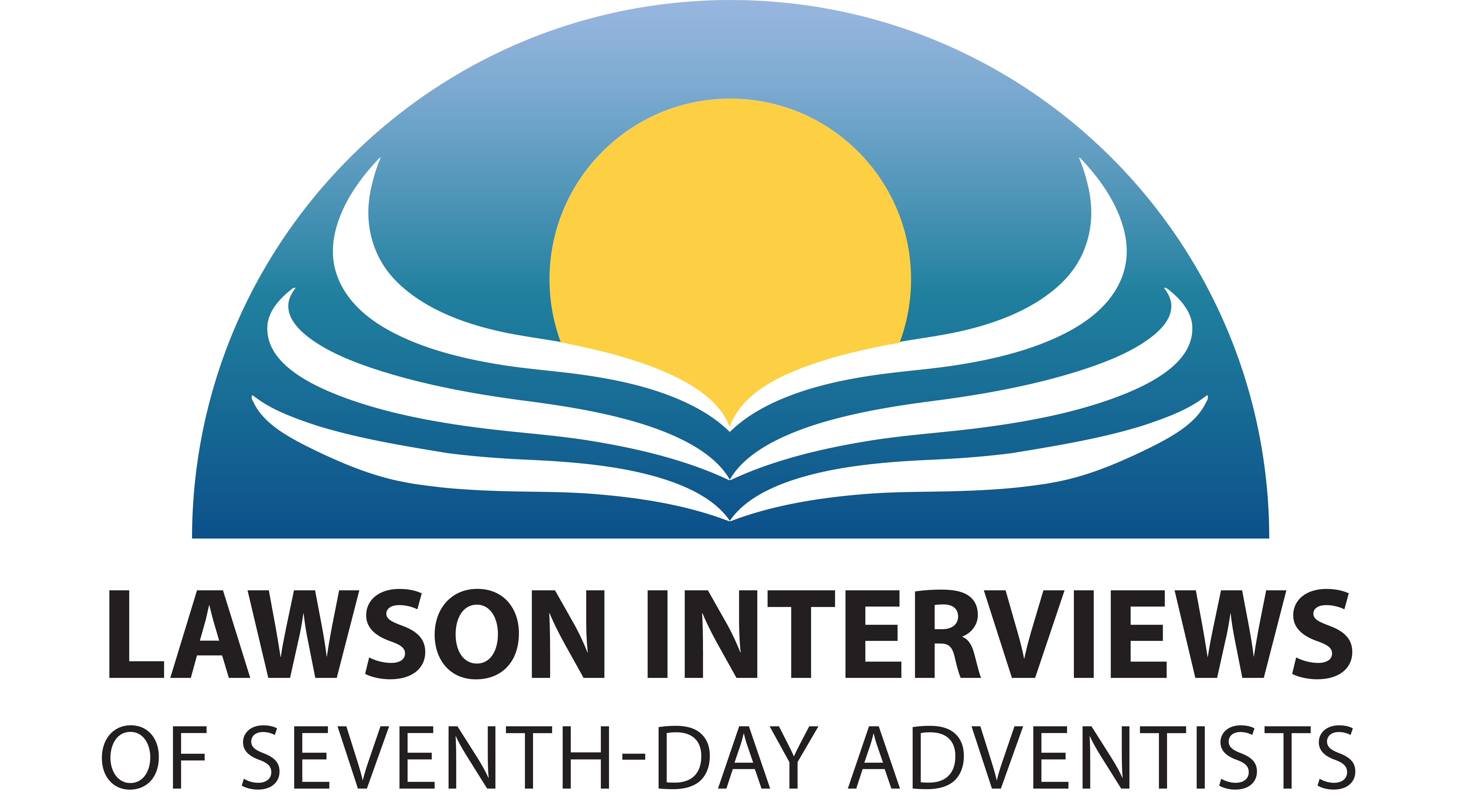Dr. Ronald Lawson is a professor emeritus at Queens College, City University of New York. For roughly 30 years, he has worked on a comprehensive sociological study of his own denomination, the Seventh-day Adventist Church — and he continues to interview and write for the project as the lead researcher of the LISDA team. Why did he start, and why has he continued this endeavor with such tenacity?
Lawson loves a lot of things about the church he grew up in. He was born in 1940 in Sydney to Adventist parents. His father was a leader in the local church, his mother an educator and former missionary, and many of his earliest memories involve church activities. When he discovered his passion for music, his church community provided him with musical opportunities: He played the organ and formed a church choir which sang every week until he left for college.
While in college, he served as president of the student Adventist group, helping teach a youth Sabbath school at Brisbane Central Church, which was eventually shut down by pastors who disapproved of young people discussing controversial topics. Lawson has long made numerous connections throughout his church and has always enjoyed a good service, especially one with good music and deep discussion.
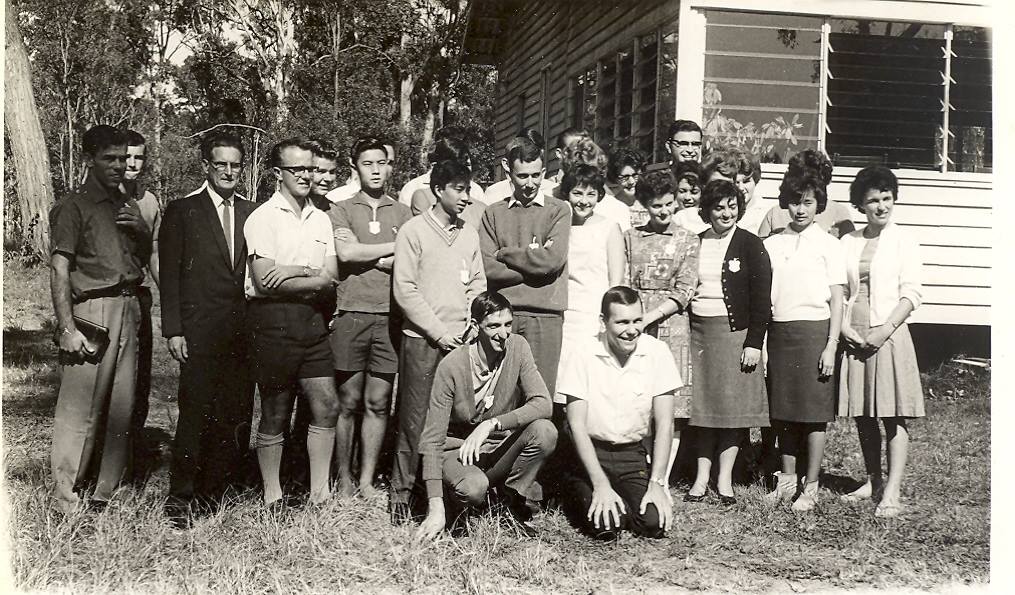
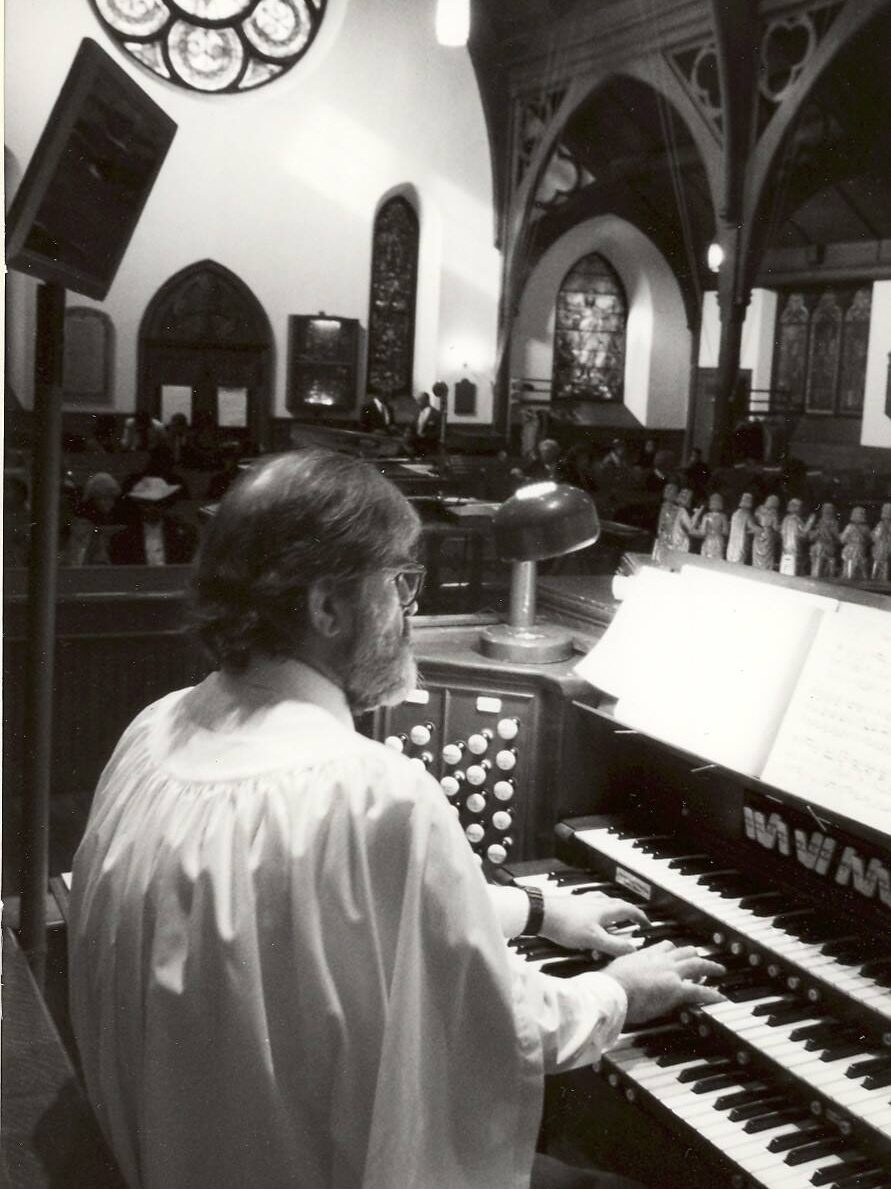
Lawson’s mother, who had homeschooled him for much of his childhood, expected him to use his talents to serve the church as an evangelist or pastor. As he got older, Lawson craved gaining new knowledge from outside the Adventist system. He decided to study history at Queensland University instead of pursuing a church career through Avondale, the Adventist college in Australia. In graduate school, Lawson became enthralled with the sociology of religion coursework, recognizing that many sociological theories could be applied to his own church. However, he had already become invested in urban studies, and after completing his Ph.D. in both history and sociology in 1970 and receiving a Fulbright grant at Columbia University, he began researching tenant activism in New York.
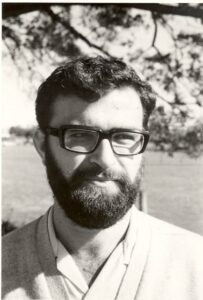
In 1983, after completing a major project and receiving tenure, Lawson knew it was the right time to launch the comprehensive study of Adventism he had aspired to as a student. When Lawson began his study of Adventists in 1984, he planned to focus only on North America, but at the 1985 General Conference Session, he witnessed international delegates expressing their desire for greater representation in the global church leadership. Lawson immediately recognized the importance of the global membership and sought out the voices of Adventists in different countries over the subsequent decades.
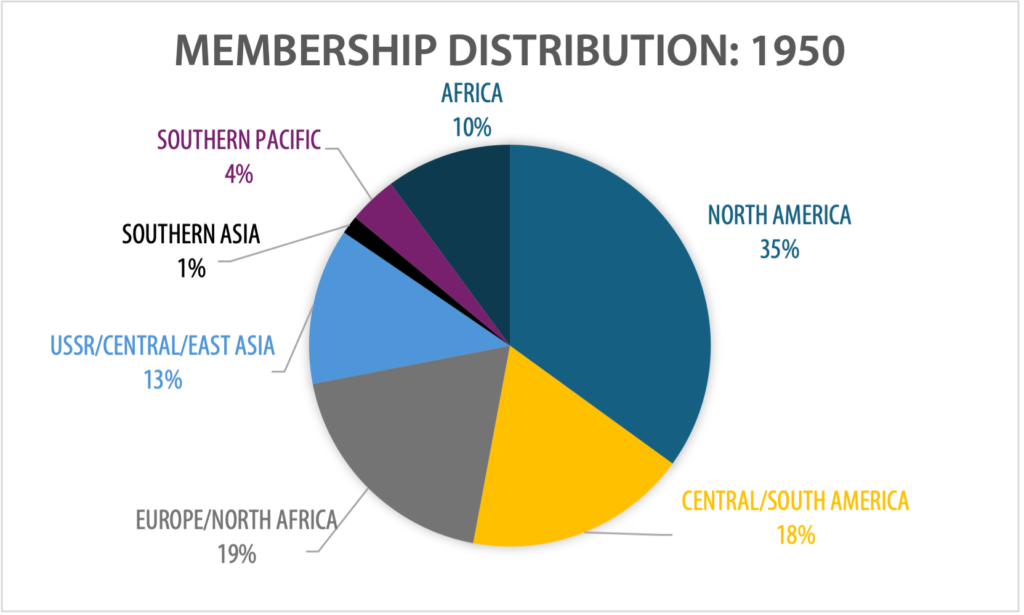
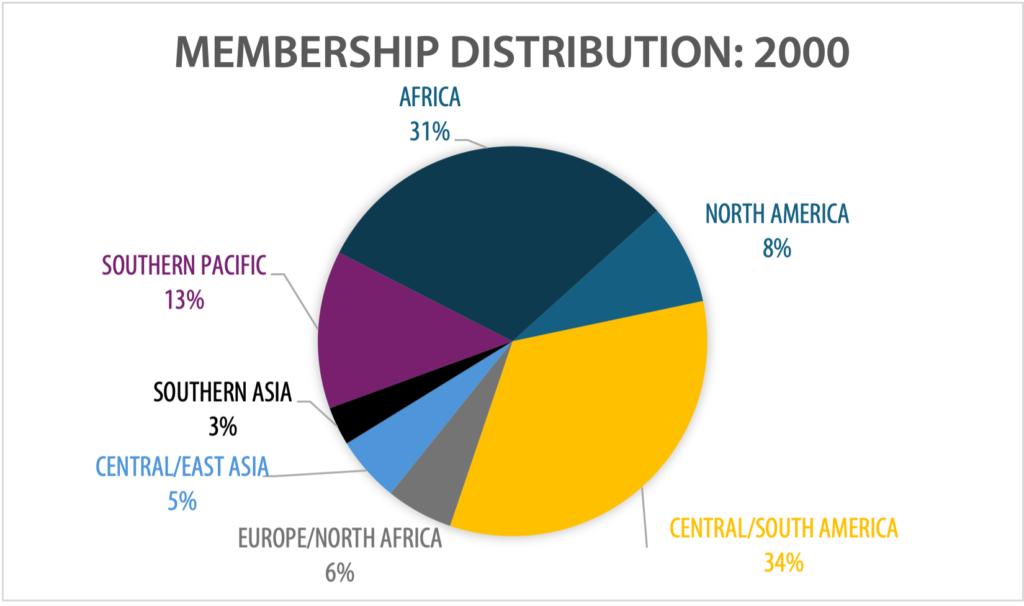
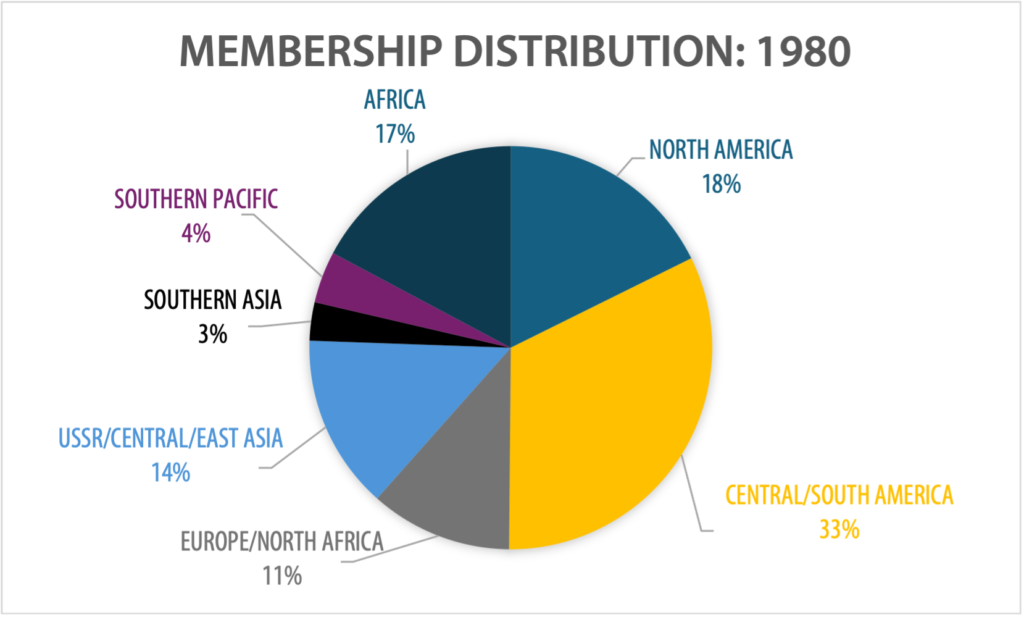
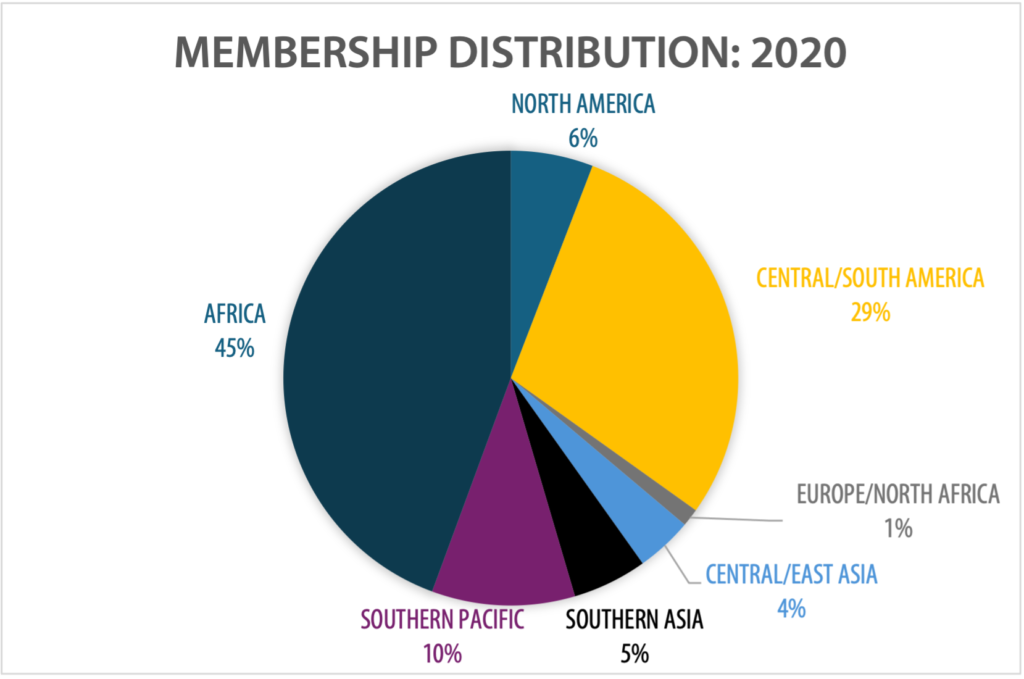
As shown in the graphs above, members in North America accounted for more than a third of the global membership in 1950, but this had shrunk to 18% by 1980, and is more recently only 6%. Lawson collected over 4,500 interviews of Adventists across 60 countries between 1984 and 2014, and he continues to interview when the opportunity arises. This means that his study covers a time frame of explosive growth and expansion in the Adventist church. Between 1980 and 2020, the membership grew from 3.3 to 21.5 million, with much of the growth taking place in Latin America and Africa.
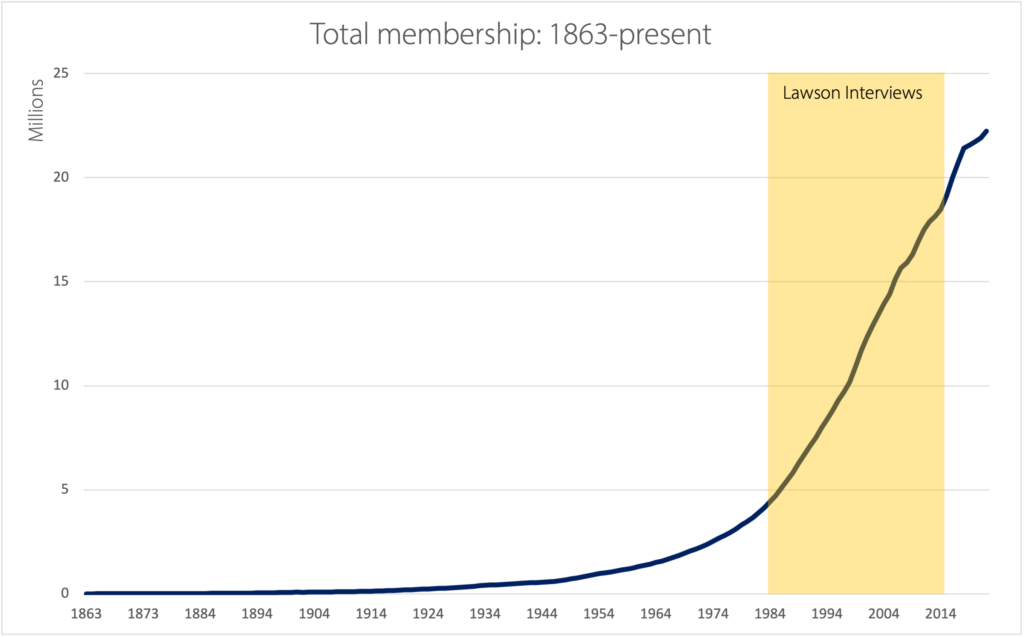
Studying changes in Adventism is also very personal to him. In adolescence, Lawson had discovered his homosexuality and worried that society and God would not accept him. By the time he became a professor in New York, Lawson had come to terms with his sexuality and sought companionship within his community. Following a series of personal ads taken out by Lawson and other Adventists in national magazines, a loose network of non-heterosexual Adventists emerged in 1977. This support group, called Kinship, became a national organization, and Lawson agreed to become its liaison to the Adventist Church.
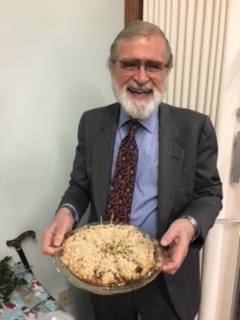
As the LGBTQ movement in the United States grew and Lawson established himself as a prominent gay activist within Adventism, he observed pushback to the movement from the church and general society. Church leaders who seemed initially neutral to Kinship, even cautiously supportive, eventually discouraged others from associating with Kinship. It became personally important for him to understand how the church changes while grappling with shifting societal norms.
Lawson has observed that Adventist discourse largely consists of voices that make things look better than they are as well as voices that only ever say disparaging things. Between white-washing church officials and bitter ex-Adventists, there is an absence of honest public dialogue, a problem which Lawson seeks to address by combining sociological theory with voices from the Adventist community. The Lawson Interviews of Seventh-day Adventists (LISDA) project, therefore, serves an academic purpose by contributing to the sociology of religion, but perhaps more important to Lawson is sharing a truthful picture of the Adventist Church as a gift to his own community.
Get Involved
Our work is currently funded through private donations. We are partnered with Just Horizons Alliance through the Center for Mind and Culture (CMAC), a non-profit research institute located in Boston. Making a donation to LISDA on the Just Horizons website provides access to the donor newsletter and advanced access to project progress and findings.
